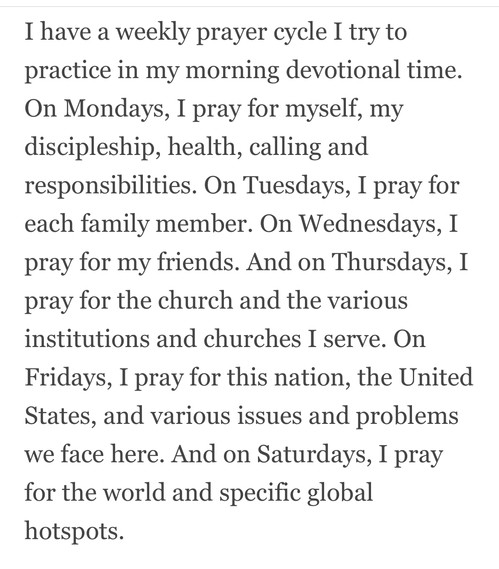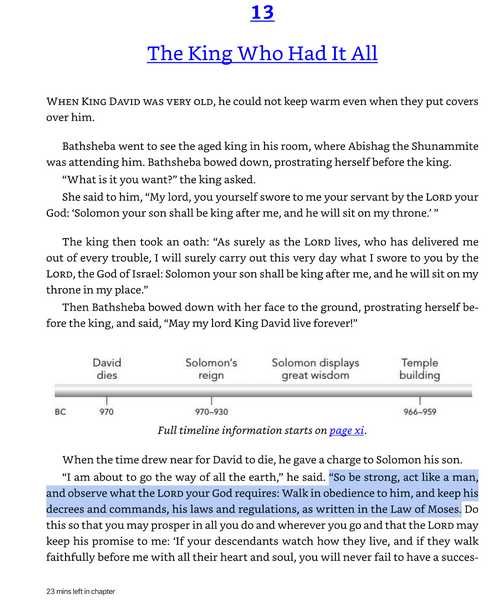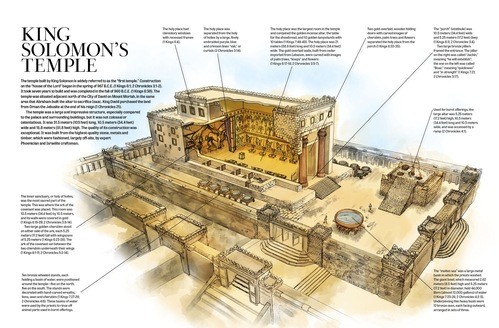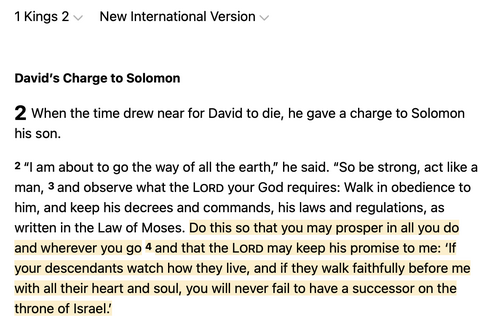The Story - Chapter 13 (part 2)
(Because we cancelled service on 1/12 due to winter weather, Bro. Keith will be preaching on Chapter 13. If you already read the chapter, you get a week off! If not, this is your chance to catch up!)
------------------------------------------------------------
------------------------------------------------------------
As the New Year begins, I know many people include growth in their faith and devotional life as part of their resolutions. I wanted to share a practice that has been meaningful for me:

I came across this prayer cycle in an article by a Baptist theologian (GASP!) I read some time ago. It’s been a wonderful way to focus my prayer time. The cycle offers a daily specific prayer intention (for myself, my family, etc), while still being simple and general enough to allow the Holy Spirit to guide my thoughts and prayers in the moment. If you decide to use it, I’d love to hear what you think!
One of the joys of using this prayer cycle is when a scripture I come across in a devotional aligns perfectly with a prayer intention. When that happens, I jot down the scripture next to the corresponding intention in the prayer cycle. This way, I can revisit that scripture in future weeks as part of my prayer.
For example, Chapter 13 of The Story features one of those scriptures that resonates deeply with me:
One of the joys of using this prayer cycle is when a scripture I come across in a devotional aligns perfectly with a prayer intention. When that happens, I jot down the scripture next to the corresponding intention in the prayer cycle. This way, I can revisit that scripture in future weeks as part of my prayer.
For example, Chapter 13 of The Story features one of those scriptures that resonates deeply with me:

In 1 Kings 2, as King David prepares for his passing, he shares his final wishes with his son Solomon. When I read this scripture during my devotional time, I realized it expresses everything I want for my daughters as well! On most Tuesdays, I reread 1 Kings 2 while praying for my family. I even adapt the passage by removing the “act like a man” phrasing and inserting Cate and Molly’s names in place of Solomon’s. This practice reminds me of how powerful it can be to make scripture’s stories our stories and, by extension, our families’ stories.
Chapter 13 of The Story also marks a critical transition for Israel. A successful shift of power occurs within the royal family as David passes the throne to Solomon. At that time, the tabernacle—a portable tent used for worship during the Israelites' wandering—was still in use. However, the establishment of a kingship brought with it the need for something more permanent. This chapter tells of King Solomon constructing and dedicating the temple, signaling the end of the tabernacle era and the transfer of its sacred symbols to a more enduring structure.
Chapter 13 of The Story also marks a critical transition for Israel. A successful shift of power occurs within the royal family as David passes the throne to Solomon. At that time, the tabernacle—a portable tent used for worship during the Israelites' wandering—was still in use. However, the establishment of a kingship brought with it the need for something more permanent. This chapter tells of King Solomon constructing and dedicating the temple, signaling the end of the tabernacle era and the transfer of its sacred symbols to a more enduring structure.

God blessed the work of these kings, enabling Israel to consolidate its power, reduce internal conflicts, and take its place as a significant player on the world stage. God also made a covenant with David and his descendants to establish their lineage forever—conditionally. Every sign, as noted in Chapter 13, pointed to God conditionally blessing the kingship. And what was the condition?
Let’s hear it from King David himself. In his final wishes to Solomon, David shared the covenant and the condition attached to the blessing:
Let’s hear it from King David himself. In his final wishes to Solomon, David shared the covenant and the condition attached to the blessing:

If.
The success of Solomon, the temple, and the people as a whole hinged on one vital condition: if they remained faithful to God and lived according to God’s commands. David explained it clearly: “If your descendants watch how they live, and if they walk faithfully before me with all their heart and soul.”
This work of leadership and worship demanded discipling their successors—their children and future generations. This echoes something we as Christians know well. Jesus, in what we now call the Great Commission (Matthew 28), instructed His disciples:
This work of leadership and worship demanded discipling their successors—their children and future generations. This echoes something we as Christians know well. Jesus, in what we now call the Great Commission (Matthew 28), instructed His disciples:
Go...and make disciples of all nations, baptizing them in the name of the Father and of the Son and of the Holy Spirit, and teaching them to obey everything that I have commanded you.
The mission of the Church, as reflected in the words of King David, the work of King Solomon, those who built and worshipped at the temple, and the Great Commission, is to form our children and those who are unfamiliar with the Church into disciples of Jesus. The continuity of our ministries depends not on us alone, and our efforts must not ultimately center on us: God’s blessings for the Church will always rest on our willingness to invite the next generation into discipleship.
Moving forward, everything we do as a church—from the smallest task to the largest event—must align with this challenge: Does this (act, class, worship service, service project, etc.) invite children or those unfamiliar with Christ into discipleship? We need to begin asking this question seriously and living out our response, starting today.
Moving forward, everything we do as a church—from the smallest task to the largest event—must align with this challenge: Does this (act, class, worship service, service project, etc.) invite children or those unfamiliar with Christ into discipleship? We need to begin asking this question seriously and living out our response, starting today.
Recent
Archive
2025
January
2024
August
October
Categories
no categories

No Comments